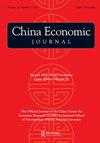“RCEP from the middle powers’ Perspective”
IF 2.3
Q1 ECONOMICS
引用次数: 6
Abstract
ABSTRACT East Asian countries signed the Regional Comprehensive Economic Partnership Agreement (RCEP) in November 2020. This paper demonstrates the importance of ASEAN centrality in East Asian economic integration and makes a preliminary assessment of the agreement in terms of the four expected roles: liberalization, rulemaking, reducing policy risks, and forming a pro-trade middle power coalition. The comparison with the Comprehensive and Progressive Agreement for Trans-Pacific Partnership (CPTPP) reveals the strengths and weaknesses of RCEP. The paper emphasizes the importance of dynamic aspects of mega-FTAs after being in effect and claims that RCEP must be further developed as an evolving agreement.“中等大国视角下的RCEP”
东亚国家于2020年11月签署了《区域全面经济伙伴关系协定》(RCEP)。本文论证了东盟中心地位在东亚经济一体化中的重要性,并从自由化、规则制定、降低政策风险和形成支持贸易的中等大国联盟四个方面对该协定的预期作用进行了初步评估。通过与《全面与进步跨太平洋伙伴关系协定》(CPTPP)的比较,可以看出RCEP的优势和不足。该文件强调了大型自由贸易协定生效后动态方面的重要性,并声称RCEP必须作为一个不断发展的协议进一步发展。
本文章由计算机程序翻译,如有差异,请以英文原文为准。
求助全文
约1分钟内获得全文
求助全文

 求助内容:
求助内容: 应助结果提醒方式:
应助结果提醒方式:


